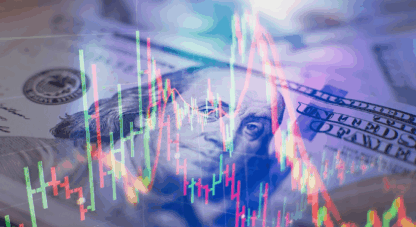“In the long run we’re all dead,” Keynes informed us. He did so in order to stress economic theory’s inability to determine the distant future.
That’s true if your economic theory is based on numbers and government control. In the real world the long term is determined by morality, while the short term can be determined by morality, practicality, frivolity, irresponsibility, or a mixture of these, perhaps with a number of other approaches.
The US has conducted its economic affairs over the past 111 years with a primary mix of practicality and irresponsibility. It has optimized short-term gain at the expense of long-term economic health. That’s what debt does, and our system is based on debt.
Of course, debt can be a good thing if borrowed money is put to work improving the machinery of productivity in some way. The improvements pay off the debt and continue to spin off benefits for many years to come. That’s responsible business, and far from being a problem, it’s beneficial.
But taking on debt to pay for consumption outside of a survival situation is foolish. It consumes future earnings today, and leaves the future bleak and difficult.
America’s flood of cheap debt has allowed many prudent business people and investors to create and store value. It has allowed others to consume their future. The really bad news is that the country as a whole is in the latter category. Politicians buy votes with money they think is endless. Entitlement programs, cushy jobs, frivolous research, huge bailouts, fat pensions, immense contracts, profligate foreign aid, and much more have eaten away our bright future for paltry gains and massive losses today.
The analysts whose publications are featured below have very little say in national policy—no more than many of the rest of us. However, they are highly accomplished at preparing individuals for the fallout from national lunacy. This is not speculation or hope. Thousands of their clients have been spared the worst ravages of economic downturns over the past half-century. Many have profited handsomely during such times.
You may choose to join the ranks of such fortunate clients or you might choose to benefit solely from the below publications—or of course you can choose to spend your time elsewhere. The choice is yours, but know that these advisors’ guidance has been tested in the furnace of events. It is based on fact, not guesses, and you will improve your situation by hearing and heeding.
Key Takeaways:
- Keep the future in mind
- A new French revolution?
- The US—in a hole, but still digging
- The charts tell the weekly story; the hosts tell the big story
The McAlvany Weekly Commentary: Apple Mentions A.I. & Gets Free Pass On Falling Earnings
Hosts David and Kevin begin their podcast this week with the importance of looking ahead. A pilot needs to know the weather he’s going to land in, not just what he takes off in. A sailor needs to trim his sails before the wind hits, not as it arrives. Likewise, investors must read the ‘weather’ right and anticipate storms before they hit. As Kevin notes, “when you’re out sailing, you can leave things up too long… If you’re actually thinking about reefing in the sail, you’re probably a little bit late.” With a stock market set for fair winds and following seas, few investors notice the storm clouds. Those clouds are no longer on the horizon, but near at hand. Both hosts give historical examples of people who either heeded this advice or didn’t—to their great profit or immense chagrin, respectively. David’s example was so impactful that it caused him to leave Morgan Stanley and return to the family business. One storm cloud the hosts single out is the geopolitical one. They give the example of Mexico. The recent election there brought a dyed-in-the-wool socialist to the helm, and markets immediately tanked. Given that there are 88 national elections in 2024—most of which are still to come—the threat of geopolitical upset of the markets is significant. There are also loan delinquencies, inflation indicators, and health indications of the market to be aware of. David concludes: “And all I can say is, in this environment, be very careful. Don’t play with money that you can’t afford to lose. Only invest with a strong rationale, with a strong strategy, with risk mitigation processes as a part of the method that you use, and with an incredible amount of humility.”
Credit Bubble Bulletin: Greatest Threat
Doug wends his careful way through conflicting data, some of which indicates instability or weakness in the economy; some, of strength. “Still, there are ample signs of economic weakness. To be sure, the U.S. Bubble Economy is extraordinarily unbalanced. Yet the overall economy maintains sufficient momentum to sustain inflationary pressures and keep the Fed on the sideline. The Atlanta Fed GDPNow indicator remains above 3.0%. The U.S. economy is incredibly vulnerable, though perpetuating ‘Terminal Phase’ excess only exacerbates fragilities. So far, trouble at the ‘periphery’ (i.e., France) has supported loose conditions at the ‘core.’ Probabilities for a destabilizing global ‘risk off’ deleveraging continue to rise.” Doug then focuses on France and its political woes that threaten to cause financial woes. However, he notes, “I don’t sense a fear of financial crisis is top of mind (outside of, perhaps, European debt markets). It’s late in the speculative cycle, so U.S. market complacency is not surprising. Markets have inflated so big, bold, and dominant that the notion of European politicians going rogue and triggering a crisis seems implausible to most. But if France’s extremist party leaders are these days intimidated by the financial markets, they do a decent job of concealing it.” In short, he notes that France, the second largest economy in the EU, could present “potentially the first debt crisis in a ‘core’ economy since the ‘great financial crisis.’”
Hard Asset Insights: An Unnerving Feeling
Morgan quickly cuts to the chase this week, noting that, “The US Treasury reported that in May, the US fiscal situation boldly charted new territory with the widest monthly ‘True Interest Expense’ deficit of our modern era. True Interest Expense is entitlement spending plus interest paid on outstanding debt. In May, that total came to $467 billion, or fully 144% of total tax receipts. That’s 144% of tax receipts before we even get to all other spending on Defense, Agriculture, Education, Office of Personnel Management, Transportation, Homeland Security, and the Labor Department.” Morgan’s understated conclusion: “Not at all inspiring.” Actually it might inspire a good deal of disgust, frustration, or despair—but his point is well taken. Morgan continues to focus on the ‘big numbers’—those that represent long-term consequences or circumstances—rather than the ‘little numbers’ that show monthly, quarterly, or even annual outcomes. Many such short-term statistics are regularly—and substantially—altered later, and they sometimes lack larger context. One ‘big’ number is our fiscal deficit (though a short-term number, it is commensurate with trend): “The US fiscal deficit of 7.1% of GDP is totally unprecedented outside of a major war, a serious recession, or some other enormous crisis. It projects a nearly $2 trillion deficit. To put that in perspective and underscore the problem, using the World Bank’s estimate for global GDP and global GDP growth (a rosy estimate of 3.2% real), that means almost 30% of total global GDP growth will be needed just to finance U.S. deficits.” When it comes to spending, Uncle Sam’s behavior brings images of a drunken sailor to mind. And it he’s too drunk to be responsible, the obligation falls on you. Morgan shows the prudent way for individuals to insulate themselves from this profligacy.
Golden Rule Radio: Teetering Markets
Miles, Tory, and Rob begin the program with a recap of action in the metals, and show that they were mostly flat for the week. From there, they transition to a look at the metals markets’ drivers, which are largely financial and geopolitical. The hosts repeatedly note that there are a number of very large factors affecting America and nations throughout the world. These factors introduce a great deal of uncertainty, and markets dislike uncertainty. The hosts begin their analysis with the US presidential election, which is looking more and more unlikely to include Joe Biden. His cognitive decline is real and pronounced, so the hosts believe the Democrats will replace him, perhaps at their convention. The hosts then turn their attention to the velocity of money, which is a key indicator of economic health. This discussion is fascinating, and looks at recent developments in light of historical trends. Though velocity has picked up in the last few years, it has done so at relatively low levels, and looks set to turn down. The conversation then turns to the BRICS “revolution” that threatens the petrodollar, the increasing tensions with Russia and China, and severe economic woes worldwide. With that background and gold’s very healthy looking fundamentals, their outlook for gold in the near to fairly long term is very positive.















